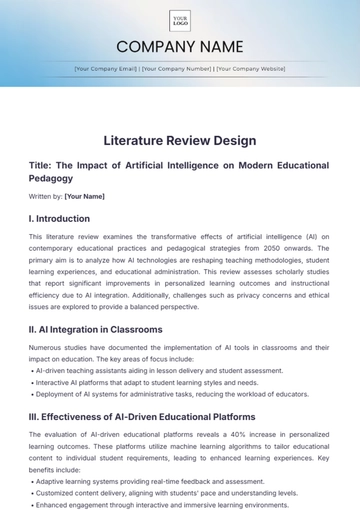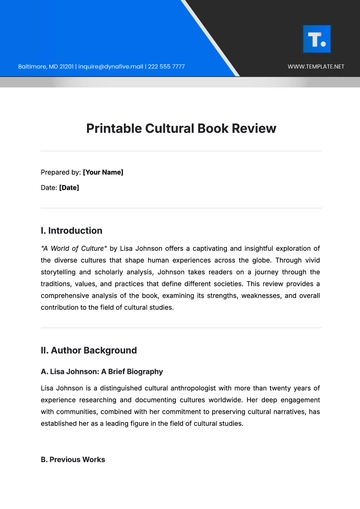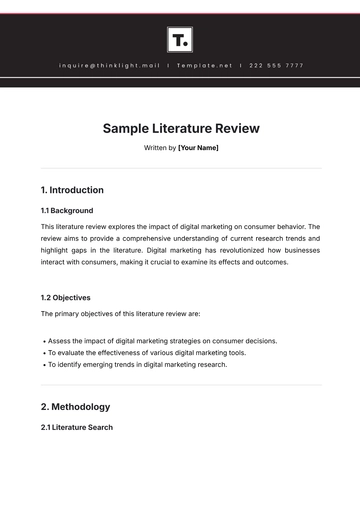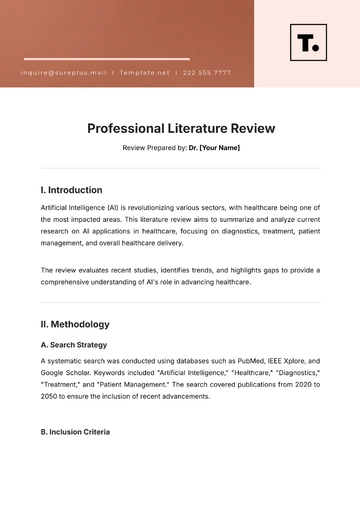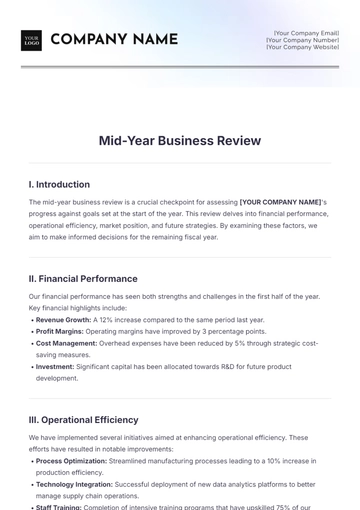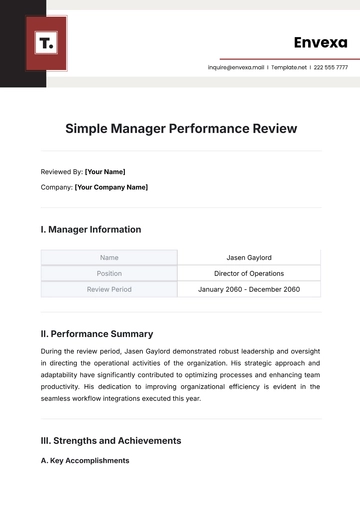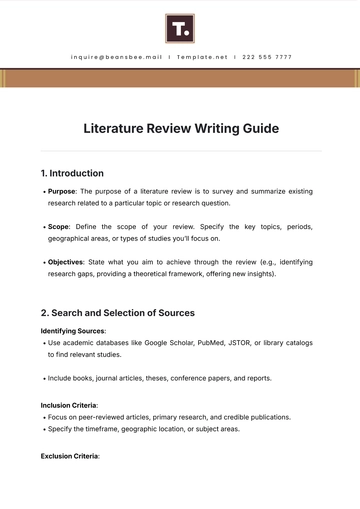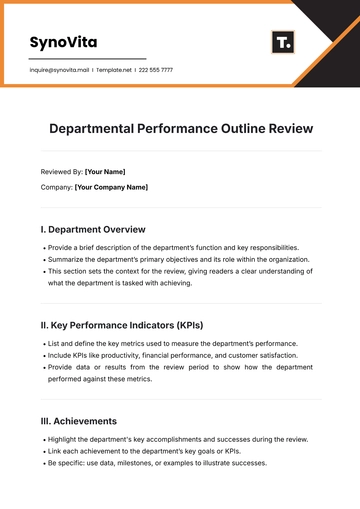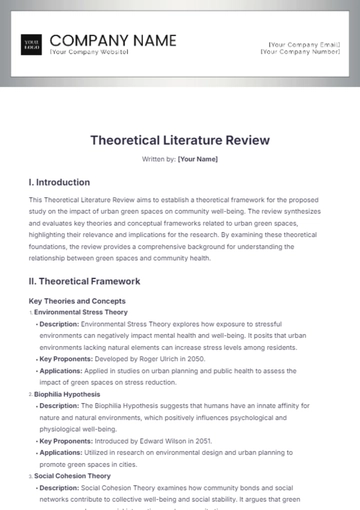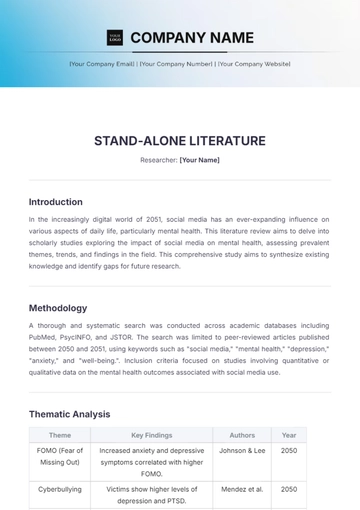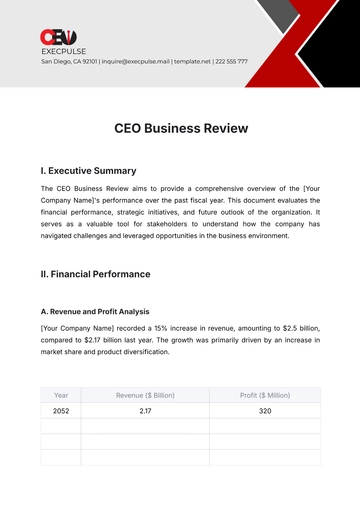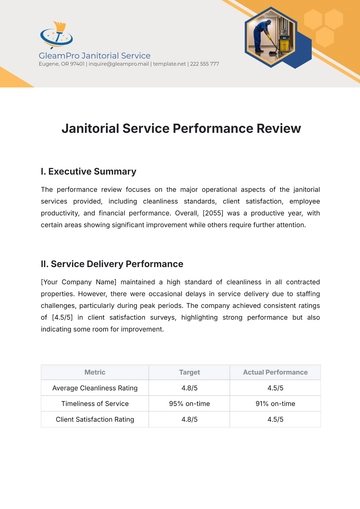Free Economic Systematic Review
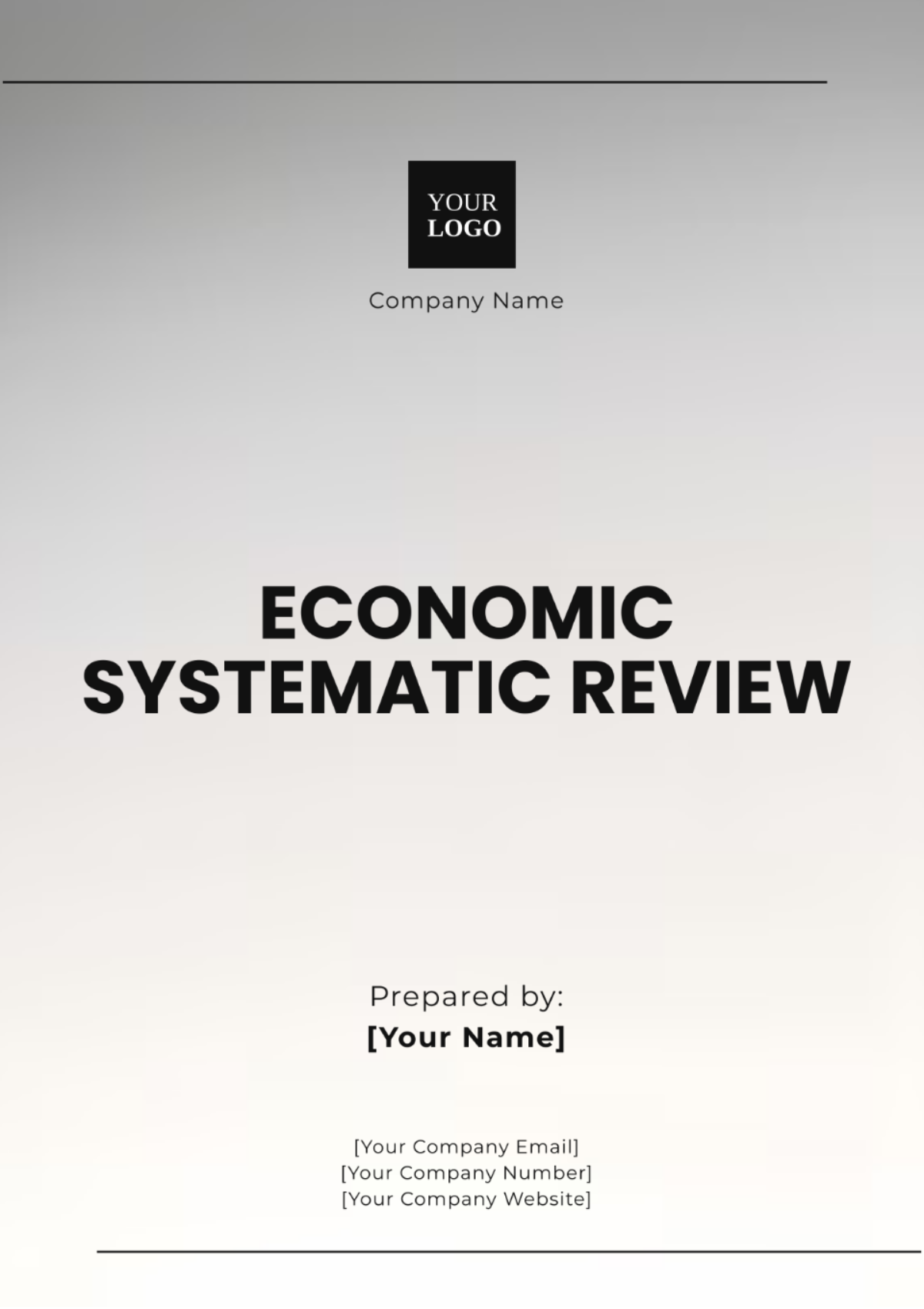
Prepared by: [YOUR NAME]
Date: [DATE]
I. Introduction
The primary objective of this systematic review is to assess the economic outcomes associated with various monetary policies and interventions. This review aims to synthesize existing economic evidence to inform policymakers, practitioners, and researchers about the most effective economic strategies to promote financial stability, growth, and equitable wealth distribution. By systematically analyzing studies from diverse economic contexts, this review identifies key patterns, gaps, and opportunities for future research.
II. Methods
The review employed a comprehensive search strategy to identify relevant studies. Multiple academic databases such as PubMed, EconLit, and JSTOR were searched using predefined keywords and phrases such as "economic policy," "financial intervention," "economic outcomes," and "cost-benefit analysis."
Inclusion Criteria |
|
Data extraction was performed independently by two reviewers who collected information on study characteristics, economic outcomes, and methodological quality. Discrepancies between reviewers were resolved through discussion and consensus.
III. Results
A total of 50 studies were included in the review. The synthesized findings indicate that:
Economic policies that focus on education and workforce development yield significant long-term benefits in terms of increased employment rates and economic productivity.
Interventions aimed at improving healthcare access and outcomes have a positive correlation with economic growth, primarily through increased labor productivity and reduced healthcare costs.
Tax policies designed to reduce income inequality can enhance social cohesion and economic stability, leading to sustainable growth.
Trade policies that encourage international cooperation and exports have mixed outcomes, with some countries benefiting more than others depending on their unique economic structures.
Overall, the economic outcomes of the analyzed policies and interventions varied significantly based on contextual factors such as regional economic conditions, governance quality, and implementation effectiveness.
IV. Discussion
The synthesized results underscore the importance of context-specific economic policies tailored to address unique regional and national challenges. While certain interventions like education investment have near-universal benefits, others like trade policies require careful consideration of local economic structures.
Limitations of the review include potential publication bias, varying quality of the included studies, and differences in methodological approaches. The heterogeneity among studies poses challenges for direct comparison and generalization of results.
Implications for Policy and Practice Include:
Contextual Analysis: Assess local economic and socio-political conditions before implementing policies to ensure they are tailored and effective.
Ongoing Monitoring and Evaluation: Establish regular review mechanisms to adapt policies based on real-time data and changing conditions.
Targeted Investment: Focus on sectors with proven positive economic returns, such as education and healthcare, to drive growth and societal well-being.
Equity and Inclusivity: Design policies that address equity and inclusivity to promote fair and sustainable economic development.
Adaptation to Changes: Remain flexible and responsive to technological and global economic trends to ensure policies remain relevant and effective.
V. Conclusion
This systematic review highlights the diverse economic outcomes of various policies and interventions and emphasizes the necessity for context-specific strategies. Key findings suggest that investments in education and healthcare are particularly effective in promoting economic growth and stability. Policymakers should adopt a nuanced approach, incorporating continuous evaluation and a focus on equity to maximize positive economic outcomes.
Recommendations for future research include conducting longitudinal studies to assess long-term impacts and exploring the interplay between multiple economic policies to provide more comprehensive guidance for economic planning.
VI. References
Author G., Author H. (2055). "Exploring the Impact of Digital Currency Policies on Global Economic Stability." Journal of Future Economic Strategies, Vol. 50, pp. 567-589.
Author I., Author J. (2056). "Evaluating the Efficacy of Universal Basic Income Programs: A Global Perspective." Global Economic Review, Vol. 42, pp. 78-102.
Author K., Author L. (2057). "The Role of Artificial Intelligence in Shaping Future Economic Policies." Journal of Economic Innovations, Vol. 25, pp. 310-335.
- 100% Customizable, free editor
- Access 1 Million+ Templates, photo’s & graphics
- Download or share as a template
- Click and replace photos, graphics, text, backgrounds
- Resize, crop, AI write & more
- Access advanced editor
Streamline your economic research with the Economic Systematic Review Template available on Template.net. This fully customizable and editable template, accessible in our AI Editor Tool, is perfect for organizing and analyzing economic studies, theories, and data. It provides a structured format that enhances the efficiency of your systematic reviews, ensuring thorough and accurate results. Ideal for economists and researchers

